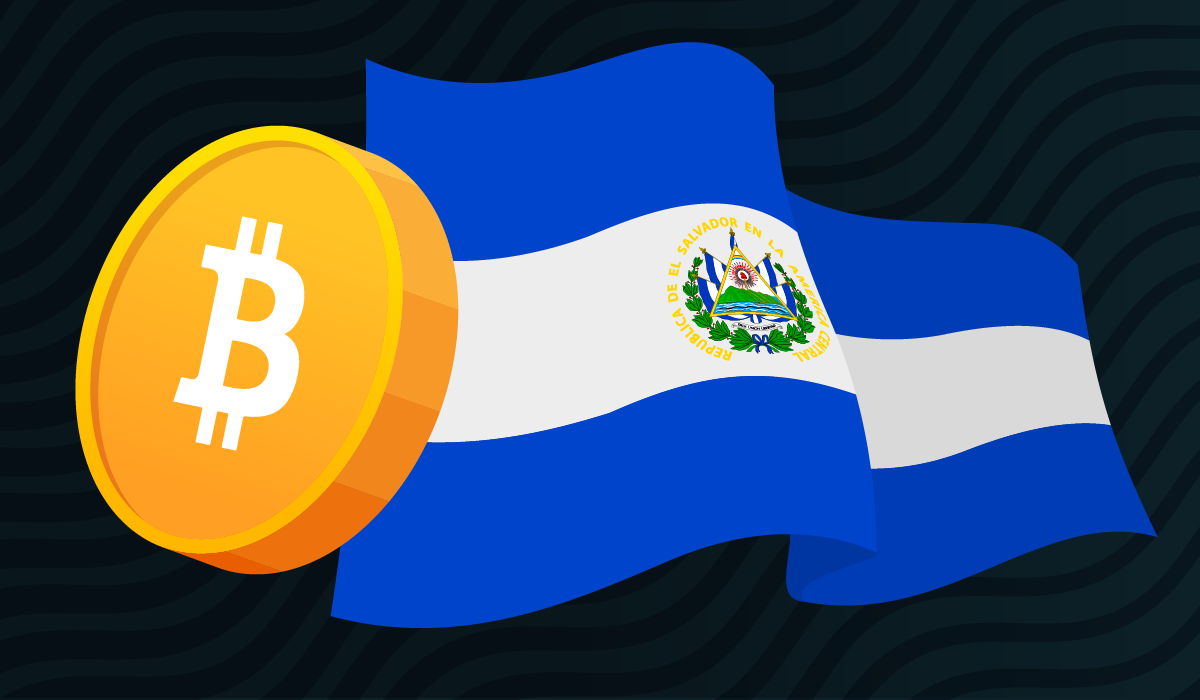The Central American country of El Salvador adopted Bitcoin as legal tender in September 2021. Since then, economists, politicians and crypto enthusiasts all around the globe have been making their predictions regarding whether this never-before seen bet would end up being fruitful or disastrous for the small nation. President Nayib Bukele, elected in 2019, is the man that announced the bitcoin adoption plan and passed it into law, with his legislation requiring all businesses to accept bitcoin as a form of payment for goods and services, essentially having the same status as fa fiat currency. The move has certainly been a risky one, but let’s see if this framework could be one that other countries will also eventually adopt.
Improving the Economy and Remittances
Bukele’s legislation was mainly introduced to give citizens without access to a bank account the chance to move funds, as well as generally help to combat poverty by increasing access to money especially for the rural population. Ideally, the introduction of BTC as legal tender would also stabilize the economy by reducing risks of inflation, according to BeInCrypto. The one aspect the legislation was successful with was educating regular Salvadoreans about crypto and their benefits: the government’s official wallet – Chivo Wallet – claimed it onboarded roughly 2.2 million Salvadoreans following BTC’s adoption, a significant quantity if correct in a country of circa 6 million people. This is likely due to the fact that the wallet offered a $30 bitcoin reward for any individual that used it.
Another benefit of Bukele’s legislation, given the fact that Salvadorans have migrated in mass numbers to the United States and elsewhere in the past decade, is that remittances to the country increased due to their massive facilitation, as sending crypto abroad in obviously simpler than sending fiat through a bank. In fact, according to the World Economic Forum, remittances make up over 20% of the country’s GDP, meaning one could see why Bukele believed introducing BTC as legal tender would benefit the country’ economy.
Technologically speaking, the legislation also makes sense. According to an interesting report by British firm PricewaterhouseCoopers (PwC), circa 70% of the country’s population is unable to access a bank account, while access to crypto wallets may be significantly higher, as there are roughly 10 million smartphones in the country, over one per person. This data indicates that a transition to a crypto-centered economy may not only facilitate remittances from outside the country but will give the Salvadoran population the possibility to instantly send money that they previously might not have had. On the flip side, El Salvador’s politicians and institutions still need to improve internet usage for its population, without which any form of fund transfer becomes close to impossible.
Education and Foreign Investment
El Salvador’s Ministry of Education has this year taken some significant steps to incorporate bitcoin education in its literacy programs by adding topics such as blockchain and crypto wallets to its pre-existing financial education modules, according to an article by Cointelegraph. This is certainly a significant achievement that will help the incorporation of bitcoin in the country, but Salvadoreans need to have the opportunity to receive such an education in a country that is marred by political and social turmoil, with El Salvador having one of the highest rates of gang violence in the world in the past two years.
Perhaps somewhat astonishingly, however, the amount of violence in the country has not deterred foreign investment and especially, tourism in El Salvador, which spiked by and amazing 30% in 2022. Making crypto legal tender has also opened the doors of the country not only to tourism, but also to foreign investments eager to explore the new, untouched market. Carlos Alfaro, who works at blockchain software firm Koibanx, said that several foreign investors have come to El Salvador due to its adoption of BTC to explore investment opportunities not just in the crypto industry, but also in other services and goods sectors linked to the new form of legal tender, such as franchising and real estate.
Challenges and Downsides
One of the institutions that voiced the most criticism towards Bukele’s BTC legislation came from the International Monetary Fund (IMF): “Given the legal risks, fiscal fragility and largely speculative nature of crypto markets, the authorities should reconsider their plans to expand governments exposures to bitcoin”, read a statement from the financial institution, as reported by Reuters. In addition, El Salvador’s move essentially closed its doors to financing from the part of the IMF, an institution that provides loans to lower-income countries.
Surprisingly, El Salvador’s economy managed to reach pre-pandemic levels this year without the Fund’s aid, with the country’s real GDP projected to grow by roughly 2.4% throughout this year, according to the IMF’s own reporting. For El Salvador to effectively incorporate crypto in its financial sphere, the country’s politicians and institutions need to focus on facilitating crypto adoption by expanding internet use especially in rural areas and give Salvadorans the opportunity to learn more about the technology behind bitcoin to use the blockchain and crypto wallets successfully. Unless these steps are taken, crypto as legal tender will never fully be embraced as legal tender, and outside parties will always question whether this experiment will ultimately prove fruitful or damaging for the Central American country.



